Top pvc valve in China introduce,list main products and website if have
One of the top PVC valve manufacturers in China is Zhejiang WOD Valve Co., Ltd. The company specializes in producing a wide range of PVC valves, including ball valves, butterfly valves, gate valves, check valves, and more.
Their main products include PVC ball valves in various sizes and configurations, such as threaded end, socket end, and flanged end. These valves are designed for reliable performance and durability in a variety of applications, including water treatment, irrigation, chemical processing, and more.
Zhejiang WOD Valve Co., Ltd. also offers PVC butterfly valves with different types of handles, such as lever handle, gear handle, and pneumatic actuator. These valves are suitable for controlling flow in pipelines with corrosive media or high purity requirements.
The company’s website is www.wodvalve.com, where customers can find detailed information about their product range, technical specifications, and certifications. Zhejiang WOD Valve Co., Ltd. is committed to providing high-quality PVC valves that meet international standards and customer requirements. With their advanced production facilities and experienced team, they are able to deliver custom solutions to meet specific project needs.
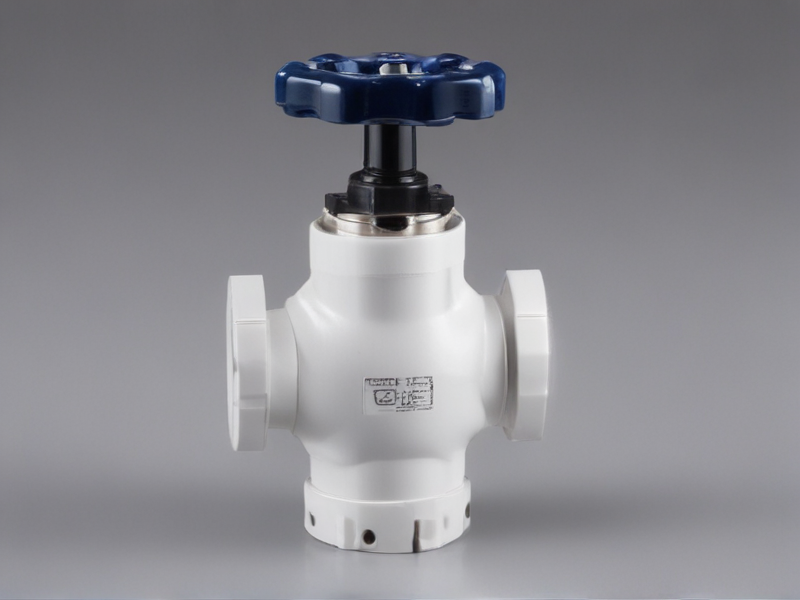
Types of pvc valve
PVC valves are commonly used in a variety of applications, including plumbing, irrigation, and industrial processes. There are several different types of PVC valves available, each designed for specific purposes:
1. Ball Valves: Ball valves are some of the most common types of PVC valves. They have a spherical disc inside that controls the flow of fluid by rotating the handle attached to the ball. Ball valves are typically used in applications where a tight shut-off is required, such as water supply lines.
2. Gate Valves: Gate valves have a gate or wedge that moves up and down to control the flow of fluid. These valves are best suited for on/off applications and are commonly used in irrigation systems and wastewater treatment plants.
3. Check Valves: Check valves are designed to allow fluid to flow in one direction only. They prevent backflow and are commonly used in sump pumps, swimming pool systems, and air compressors.
4. Butterfly Valves: Butterfly valves have a disc that rotates on a shaft to control the flow of fluid. They are commonly used in large water supply systems, chemical processing plants, and HVAC systems.
5. Globe Valves: Globe valves have a disc or plug that moves up and down to regulate the flow of fluid. They are commonly used in applications that require precise control over the flow rate, such as chemical processing plants and steam systems.
6. Diaphragm Valves: Diaphragm valves have a flexible diaphragm that moves up and down to control the flow of fluid. These valves are commonly used in pharmaceutical and food processing industries, as well as in wastewater treatment plants.
Overall, PVC valves come in a variety of types to suit a wide range of applications. It is important to choose the right type of valve based on the specific requirements of the system and the fluid being controlled.
Pros and Cons of Using pvc valve
PVC valves, also known as polyvinyl chloride valves, are commonly used in various industries for controlling the flow of liquids or gases. There are several advantages and disadvantages of using PVC valves that should be considered before choosing them for a specific application.
Pros:
1. Cost-effective: PVC valves are generally more affordable compared to other types of valves, making them a cost-effective option for many applications.
2. Corrosion-resistant: PVC is a durable material that is not easily corroded by chemicals or water, making PVC valves ideal for handling corrosive substances.
3. Lightweight: PVC valves are lightweight and easy to install, making them a popular choice for applications where weight is a concern.
4. Easy maintenance: PVC valves are relatively easy to maintain and do not require frequent servicing or replacement.
5. Wide range of sizes: PVC valves are available in a wide range of sizes to accommodate different flow rates and pressure requirements.
Cons:
1. Limited temperature range: PVC valves have a limited temperature range and may not be suitable for high-temperature applications.
2. Not suitable for high-pressure applications: PVC valves are not recommended for high-pressure systems as they may deform or crack under high pressure.
3. Limited chemical resistance: While PVC is generally resistant to many chemicals, it may not be suitable for certain aggressive chemicals that can degrade the material.
4. Fragility: PVC valves can be brittle and may break or crack if exposed to heavy impact or stress.
5. Environmental concerns: PVC is a type of plastic that is not biodegradable and can release harmful chemicals when burned, raising environmental concerns.
In conclusion, PVC valves have several advantages such as affordability, corrosion resistance, and ease of maintenance. However, they also have limitations such as a limited temperature range, susceptibility to high pressure, and environmental concerns. It is important to carefully consider these factors and assess the specific requirements of the application before choosing PVC valves.
pvc valve Reference Specifications (varies for different product)
PVC valves are available in a variety of specifications, depending on the specific product and application. Some common reference specifications for PVC valves include:
1. Size: PVC valves come in various sizes, ranging from 1/2 inch to 12 inches or more. The size of the valve will depend on the flow rate and pressure requirements of the system.
2. Pressure rating: PVC valves are typically rated for a maximum pressure, usually around 150 psi. It is important to select a valve with a pressure rating that meets or exceeds the operating pressure of the system.
3. Temperature rating: PVC valves have a temperature rating that specifies the maximum temperature at which the valve can safely operate. Most PVC valves have a temperature rating of around 140°F to 160°F.
4. Material: PVC valves are made from polyvinyl chloride (PVC), which is a durable and corrosion-resistant material. PVC valves are suitable for a wide range of applications, including water, chemicals, and corrosive fluids.
5. End connections: PVC valves are available with various end connections, including slip/socket, threaded, and flanged. The type of end connection will depend on the piping system and installation requirements.
6. Operation: PVC valves can be operated manually or with the use of an actuator. Manual operation is typically achieved with a handle, while automatic operation may require an actuator or solenoid valve.
Overall, PVC valves are versatile and reliable components that are used in a wide range of industrial, commercial, and residential applications. When selecting a PVC valve, it is important to consider the specific reference specifications to ensure proper performance and compatibility with the system.
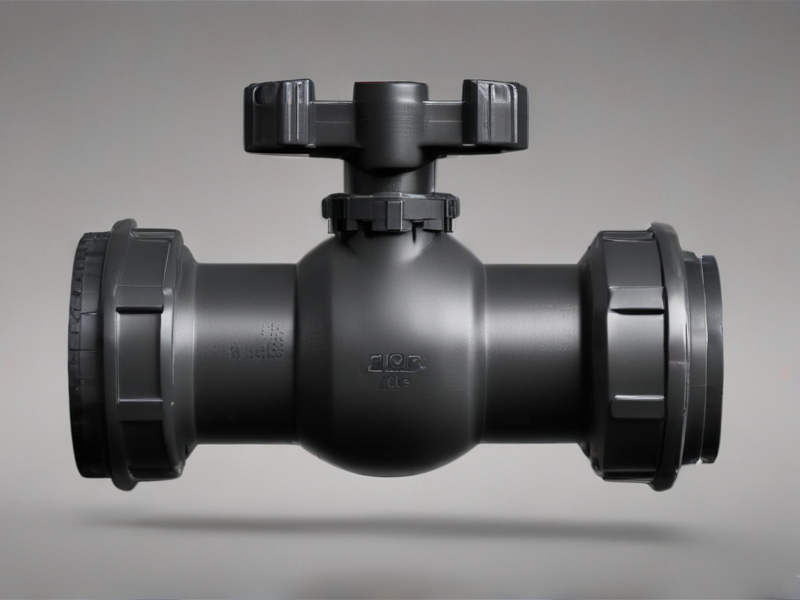
Applications of pvc valve
PVC (polyvinyl chloride) valves have a wide range of applications across various industries due to their durability, affordability, and chemical resistance. One of the most common uses of PVC valves is in plumbing systems for controlling the flow of water and other fluids. PVC ball valves, gate valves, and check valves are commonly used in residential, commercial, and industrial plumbing systems to regulate the flow of water and prevent backflow.
In the chemical industry, PVC valves are used to control the flow of corrosive chemicals and acids. PVC is highly resistant to a wide range of chemicals, making it ideal for use in chemical processing plants, water treatment facilities, and laboratories.
PVC valves are also used in irrigation systems to regulate the flow of water to crops and plants. PVC ball valves and solenoid valves are commonly used in drip irrigation systems, sprinkler systems, and other agricultural applications to control the flow of water and fertilizers to crops.
In the manufacturing industry, PVC valves are used in various applications such as controlling the flow of air, steam, and other gases. PVC butterfly valves and diaphragm valves are commonly used in HVAC systems, pneumatic systems, and industrial process equipment.
Overall, PVC valves have a wide range of applications across industries such as plumbing, chemical processing, agriculture, and manufacturing due to their versatility, durability, and chemical resistance. These valves play a crucial role in controlling the flow of fluids and gases in various systems to ensure efficient operations and environmental safety.
Material of pvc valve
PVC valves are commonly made from polyvinyl chloride (PVC), a synthetic plastic material that is widely used in piping and plumbing applications. PVC is a durable and versatile material that is resistant to corrosion, rust, and chemical damage, making it ideal for use in valves and other components that come into contact with fluids.
PVC valves are typically made through a process called injection molding, in which molten PVC resin is forced into a mold and then cooled and solidified to form the valve body and components. PVC valves are known for their light weight, ease of installation, and low cost compared to metal valves.
There are different types of PVC valves, including ball valves, check valves, gate valves, and globe valves, each designed for specific applications and purposes. PVC valves are commonly used in residential and commercial plumbing systems, irrigation systems, water treatment plants, and chemical processing plants.
While PVC valves offer several advantages, such as their corrosion resistance, affordability, and easy maintenance, they are not suitable for high-pressure applications or applications involving high temperatures. PVC valves are typically limited to operating temperatures of up to 140°F and pressures of up to 150 psi, making them suitable for most typical plumbing and fluid handling applications.
In conclusion, PVC valves are an economical and reliable option for a wide range of fluid handling applications. Their ease of installation, resistance to corrosion, and versatility make them a popular choice for many industries.
Quality Testing Methods for pvc valve and how to control the quality
Quality testing methods for PVC valves include visual inspection, pressure testing, torque testing, and material testing. Visual inspection involves checking for any surface defects, irregularities, or imperfections on the valve. Pressure testing involves subjecting the valve to its maximum operating pressure to ensure it can withstand the required pressure without leakage. Torque testing checks the tightness of the valve’s components to ensure they are properly secured. Material testing can be done through chemical analysis or mechanical testing to confirm the quality of the PVC material used in the valve.
To control the quality of PVC valves, it is important to establish clear quality standards and specifications for the valves. Regular training and education for employees involved in the manufacturing process can help ensure they are familiar with the quality standards and are able to consistently produce high-quality valves. Implementing a quality control system that includes regular inspections, testing, and quality assurance measures can help monitor and control the quality of PVC valves throughout the manufacturing process. Working closely with suppliers to ensure the quality of raw materials used in the valves is also important in controlling the overall quality of the final product. Additionally, seeking feedback from customers and incorporating it into the quality control process can help identify areas for improvement and ensure customer satisfaction with the PVC valves.
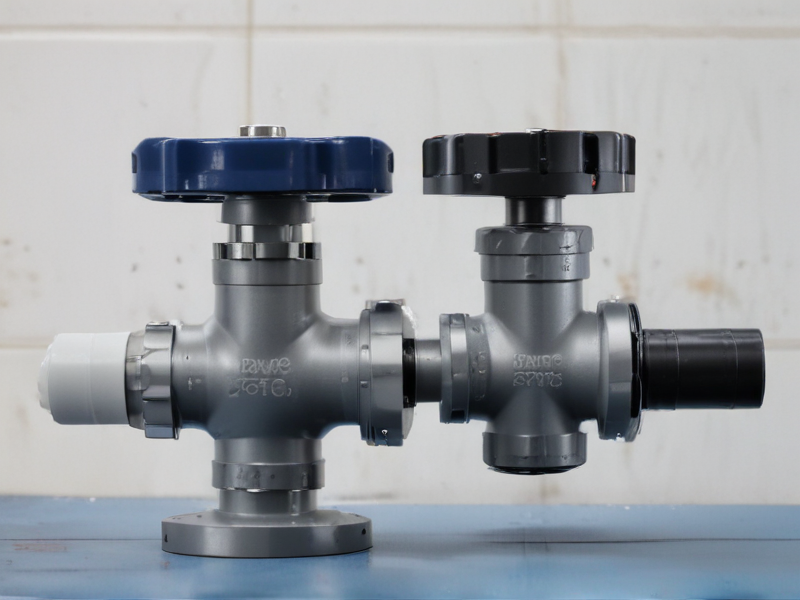
The Work Process and how to use pvc valve
PVC (polyvinyl chloride) valves are commonly used in plumbing systems to control the flow of water or other fluids. The work process of a PVC valve involves opening and closing the valve to regulate the flow of fluid through a pipe. PVC valves are usually operated by turning a handle or lever to open or close the valve.
To use a PVC valve, follow these steps:
1. Identify the location of the PVC valve in your plumbing system. It is typically located along a pipe where you need to control the flow of fluid.
2. Check that the valve is in the closed position by ensuring that the handle or lever is perpendicular to the pipe.
3. To open the valve, turn the handle or lever in a clockwise direction until it is parallel to the pipe. This will allow fluid to flow through the pipe.
4. To close the valve, turn the handle or lever in a counterclockwise direction until it is perpendicular to the pipe. This will stop the flow of fluid through the pipe.
5. Make sure to only use the PVC valve for its intended purpose and do not exceed the maximum pressure or temperature ratings specified by the manufacturer.
6. Regularly inspect the PVC valve for any signs of wear or damage and replace it if necessary to ensure proper functioning.
In conclusion, using a PVC valve is a simple process that involves opening and closing the valve to control the flow of fluid in a plumbing system. By following the recommended steps and guidelines, you can ensure the effective operation of the PVC valve in your plumbing system.
pvc valve Importing questions including Cost,Supplier,Sample,Certification and Market
When importing PVC valves, it is important to consider several factors such as cost, suppliers, samples, certifications, and market analysis.
1. Cost: The cost of importing PVC valves can vary depending on factors such as quantity, quality, and supplier location. It is essential to compare prices from different suppliers to ensure you are getting the best deal possible.
2. Suppliers: It is crucial to find reliable and reputable suppliers when importing PVC valves. Look for suppliers with a good track record of quality products and timely delivery. Consider reaching out to trade associations or using online platforms to find potential suppliers.
3. Samples: Before placing a bulk order, it is recommended to request samples from potential suppliers to evaluate the quality of the products. This will help ensure that the PVC valves meet your requirements and standards.
4. Certification: Ensure that the PVC valves you are importing meet all necessary certifications and standards required in your country. This may include certifications for quality, safety, and environmental compliance. Verify with the supplier that the products meet these standards.
5. Market: Conduct a thorough market analysis to understand the demand and competition for PVC valves in your target market. Consider factors such as market trends, competitor pricing, and potential distribution channels.
By paying attention to these factors, you can effectively import PVC valves that meet your requirements and are competitive in the market. It is essential to do thorough research and work with reputable suppliers to ensure a successful import process.
How to find and select check reliable pvc valve manufacturers in China
To find and select reliable PVC valve manufacturers in China, start by researching online platforms such as Alibaba, Made-in-China, or Global Sources. Look for manufacturers that have a good reputation, positive reviews, and a strong track record of producing high-quality PVC valves.
When contacting potential manufacturers, ask for samples of their products to assess the quality firsthand. Inquire about their production process, quality control measures, certifications, and experience in the industry. Ensure that they have the technical capabilities to meet your specific requirements and standards.
It’s also important to visit the manufacturer’s facilities if possible to see their production process in person and verify their capabilities. Look for manufacturers that have a well-equipped factory with modern machinery and a skilled workforce.
When selecting a manufacturer, consider factors such as pricing, lead times, minimum order quantities, and payment terms. Choose a manufacturer that offers competitive pricing without compromising on quality and can meet your production timelines.
Finally, don’t hesitate to ask for references from other clients who have worked with the manufacturer. This will give you further assurance of their reliability and credibility in the industry. By following these steps, you can find and select a reliable PVC valve manufacturer in China that meets your specific requirements and standards.
Background Research for pvc valve manufacturers Companies in China, use qcc.com archive.org importyeti.com
PVC valve manufacturers in China are abundant, with many companies specializing in the design and production of high-quality valves for various industries. Some well-known manufacturers include Zhejiang Ouming Fluid Casting Industry Co., Ltd, Zhejiang Fangdun Instrument Valve Co., Ltd, and Hangzhou Worldwides Valve Co., Ltd.
Zhejiang Ouming Fluid Casting Industry Co., Ltd., founded in 1983, is a leading manufacturer of PVC valves in China. The company has a strong focus on research and development, continuously innovating its products to meet the changing needs of its customers. With a wide range of valves available, including ball valves, butterfly valves, and check valves, Ouming is a trusted supplier for industries such as water treatment, chemical processing, and agriculture.
Zhejiang Fangdun Instrument Valve Co., Ltd., established in 2006, specializes in the production of PVC ball valves, gate valves, and globe valves. The company prides itself on its strict quality control measures, ensuring that all valves meet international standards for performance and durability. Fangdun’s valves are used in a variety of applications, including HVAC systems, water distribution, and wastewater treatment.
Hangzhou Worldwides Valve Co., Ltd., founded in 2003, is a professional manufacturer of PVC valves for industrial, commercial, and residential use. The company’s product range includes PVC ball valves, check valves, and diaphragm valves, all designed to withstand the harshest operating conditions. Worldwides Valve is known for its exceptional customer service and fast delivery times, making it a preferred supplier for clients around the world.
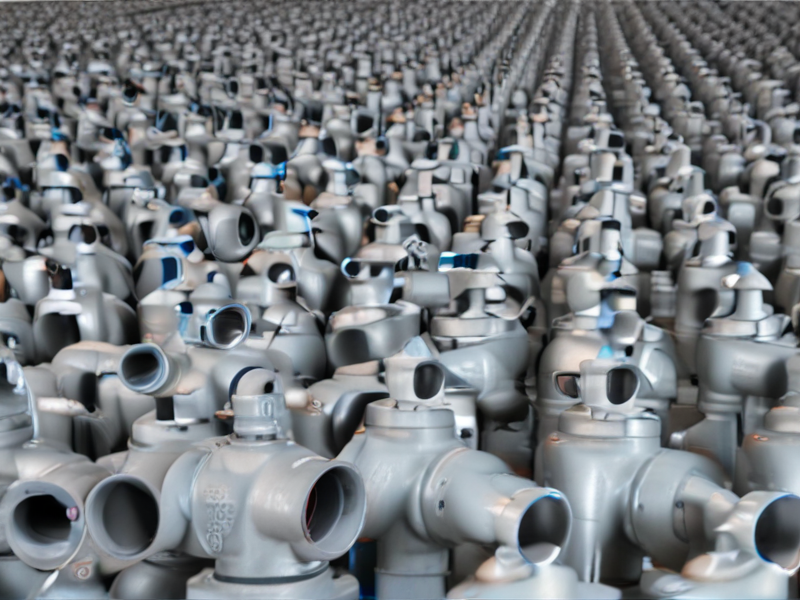
Price Cost Research for pvc valve manufacturers Companies in China, use temu.com and 1688.com
When searching for PVC valve manufacturers in China, two popular websites to use are temu.com and 1688.com. These websites provide a platform for suppliers to showcase their products and connect with potential buyers.
To conduct price and cost research for PVC valve manufacturers on these websites, start by searching for “PVC valve manufacturers” on the respective platforms. You can then browse through the list of suppliers and filter the results based on your specific criteria such as product specifications, certifications, and minimum order quantity.
Once you have identified a few potential suppliers, reach out to them directly through the platform’s messaging system or contact information provided on their profile. Inquire about their pricing for PVC valves, including any bulk discounts or customization options. You may also ask about their payment terms, lead times, and shipping costs to determine the total cost of procurement.
It is essential to compare quotes from multiple suppliers to ensure that you are getting the best possible price for your PVC valves. Additionally, consider factors such as quality, reputation, and customer reviews when selecting a manufacturer to partner with.
Overall, using temu.com and 1688.com to research prices and costs for PVC valve manufacturers in China can help you find reliable suppliers that offer competitive pricing and meet your specific requirements.
Shipping Cost for pvc valve import from China
The shipping cost for importing PVC valves from China will vary depending on several factors such as the weight of the shipment, the destination country, the shipping method, and the shipping company used. Typically, the cost of shipping PVC valves from China to the United States ranges from $200 to $800 for a small shipment and can go up to $2000 for larger shipments.
Air freight is the fastest but most expensive option, with prices ranging from $3 to $10 per kilogram. Sea freight is a more cost-effective option, with prices averaging between $500 to $1500 for a full container load (FCL) and around $100 to $300 for less than container load (LCL).
It is recommended to work with a freight forwarding company to get the best shipping rates and to ensure that the PVC valves are properly shipped and delivered on time. Some freight forwarders may also offer additional services such as customs clearance, documentation, and insurance for an additional fee.
In conclusion, the shipping cost for importing PVC valves from China will depend on various factors, and it is essential to compare quotes and choose a reliable shipping company to ensure a smooth and cost-effective import process.
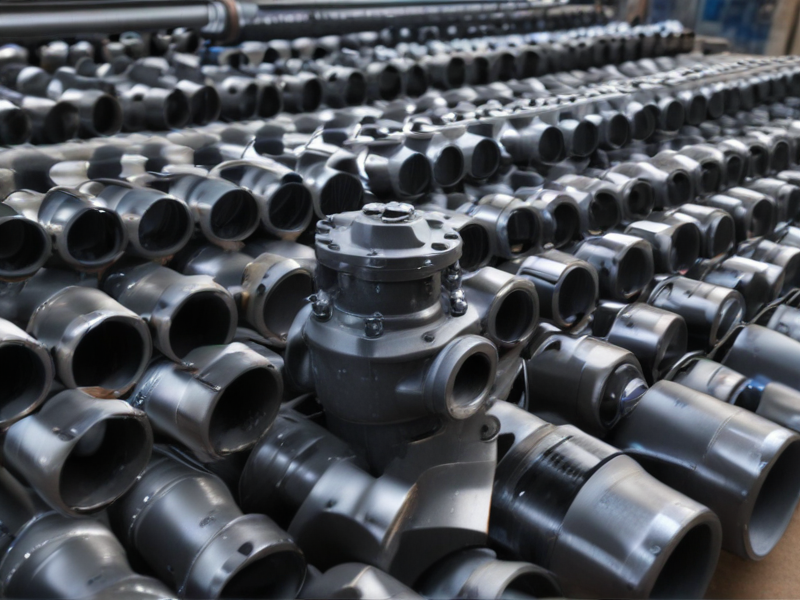
Compare China and Other pvc valve Markets: Products Quality and Price,Visible and Hidden Costs
China is known for its high-quality PVC valves that are used in various industries such as oil and gas, water treatment, and agriculture. These valves are known for their durability and reliability, making them a popular choice among consumers. However, the prices of PVC valves in China can vary depending on the manufacturer and quality of the product.
In comparison to other markets, China offers competitive prices for PVC valves due to its large manufacturing capabilities and lower labor costs. This allows Chinese manufacturers to produce PVC valves at a lower cost, making them more affordable for consumers. However, there may be hidden costs associated with purchasing PVC valves from China, such as shipping and import taxes, which can increase the overall cost of the product.
On the other hand, other markets may offer PVC valves at a higher price point but with a higher quality and more reliable performance. These markets may have stricter quality control measures in place, ensuring that the PVC valves meet international standards and regulations. While the upfront cost of purchasing PVC valves from other markets may be higher, consumers may save money in the long run by avoiding costly repairs and replacements.
Overall, consumers should consider both the visible and hidden costs associated with purchasing PVC valves from different markets before making a decision. While China offers competitively priced PVC valves, consumers should also weigh the product quality and potential hidden costs when making their purchase. Additionally, consumers should consider their specific needs and requirements when choosing a PVC valve to ensure that it meets their expectations in terms of performance and durability.
Custom Private Labeling and Branding Opportunities with Chinese pvc valve Manufacturers
Chinese PVC valve manufacturers offer custom private labeling and branding opportunities for businesses looking to create a unique and professional identity for their products. By partnering with a Chinese manufacturer, companies can customize the packaging, design, and branding of PVC valves to suit their specific requirements and target market.
With extensive experience in producing high-quality PVC valves, Chinese manufacturers can work closely with businesses to create custom designs, logos, and packaging that reflect the brand’s values and appeal to customers. Whether it’s a small run of products or a large-scale production, manufacturers can provide flexible solutions to meet the branding needs of businesses.
In addition to private labeling, Chinese PVC valve manufacturers also offer branding opportunities through custom colors, materials, and sizes to ensure that the final product meets the unique requirements of each business. By leveraging the expertise and resources of Chinese manufacturers, companies can create a distinctive brand identity that sets them apart in the market and attracts loyal customers.
Overall, partnering with Chinese PVC valve manufacturers for private labeling and branding opportunities can help businesses establish a strong presence in the industry and differentiate themselves from competitors. With a focus on quality, customization, and reliability, Chinese manufacturers can help businesses bring their brand vision to life and achieve success in the market.
Tips for Procurement and Considerations when Purchasing pvc valve
When purchasing a PVC valve for procurement purposes, it is important to consider the following factors:
1. Material: PVC valves are commonly made of polyvinyl chloride, which is a durable and corrosion-resistant material. Ensure that the valve is made of high-quality PVC to ensure longevity and reliability.
2. Size: PVC valves come in various sizes, so it is important to select the right size for your specific application. Consider the flow rate and pressure requirements to determine the appropriate size of the valve.
3. Type: There are different types of PVC valves available, such as ball valves, gate valves, and butterfly valves. Choose the type of valve that best suits your needs and requirements.
4. Pressure rating: PVC valves have different pressure ratings, so it is crucial to select a valve with a pressure rating that can withstand the operating pressure of your system.
5. End connections: Consider the end connections of the valve, such as threaded or solvent weld connections, to ensure compatibility with your existing piping system.
6. Brand reputation: Purchase PVC valves from reputable manufacturers or suppliers to ensure quality and reliability. Research the brand’s reputation and customer reviews before making a purchase.
7. Price: Compare prices from different suppliers to ensure you are getting a competitive price for the PVC valve. However, avoid compromising on quality for a lower price.
By considering these factors and following these tips, you can successfully procure a PVC valve that meets your requirements and specifications.
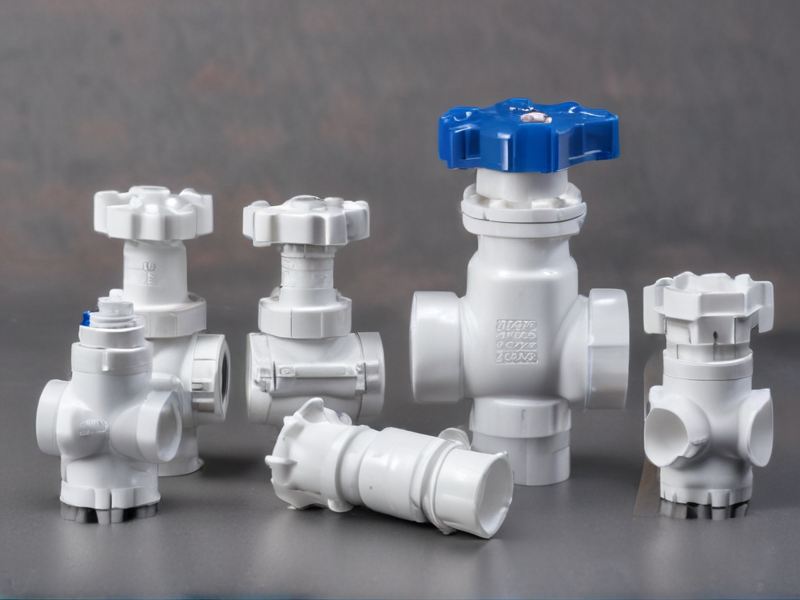
FAQs on Sourcing and Manufacturing pvc valve in China
1. What are the advantages of sourcing PVC valves from China?
China is one of the largest producers of PVC valves in the world, which allows for a wide variety of options in terms of quality, price, and customization. Additionally, manufacturers in China often have access to advanced technologies and production methods, allowing them to produce high-quality products at competitive prices.
2. How can I find reliable manufacturers of PVC valves in China?
To find reliable manufacturers in China, it is important to conduct thorough research and due diligence. This includes checking the manufacturer’s reputation, production capabilities, certifications, and customer reviews. It is also recommended to visit the manufacturer’s facilities in person to assess their manufacturing processes and quality control measures.
3. What are the common challenges when sourcing PVC valves from China?
Some common challenges when sourcing PVC valves from China include language barriers, cultural differences, and potential issues with quality control. It is important to establish clear communication with the manufacturer and to conduct regular quality inspections to ensure that the products meet your standards.
4. How can I ensure the quality of PVC valves manufactured in China?
To ensure the quality of PVC valves manufactured in China, it is important to work with reputable manufacturers who have a track record of producing high-quality products. You can also request samples for testing and inspection before placing a bulk order. Additionally, it is recommended to work with a third-party inspection agency to conduct quality inspections throughout the production process.
5. Are there any regulations or standards that PVC valves manufactured in China must meet?
PVC valves manufactured in China are subject to various international standards and regulations, such as ISO, CE, and ASTM. It is important to ensure that the manufacturer complies with these standards and that the products meet the required quality and safety requirements.conduct regular quality inspections to ensure that the products meet your standards.
Why contact sourcifychina.com get free quota from reliable pvc valve suppliers?
Sourcify China is a reputable sourcing company that connects businesses with reliable suppliers in China. By contacting Sourcify China, you can get a free quota from trusted PVC valve suppliers who have been thoroughly vetted for quality and reliability.
These suppliers have been carefully selected based on their track record of delivering high-quality products on time and meeting international standards. By obtaining a free quota through Sourcify China, you can save time and effort in finding the right PVC valve supplier for your business.
With their expertise and extensive network of suppliers, Sourcify China can help you streamline the sourcing process and ensure that you are working with a reputable supplier who can provide you with competitive pricing and top-notch quality.
Overall, contacting Sourcify China to get a free quota from reliable PVC valve suppliers can help you save time, reduce the risk of working with unreliable suppliers, and ultimately improve the efficiency and effectiveness of your sourcing process.
